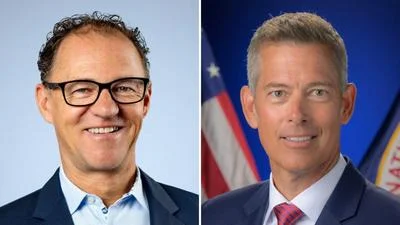WASHINGTON, DC - The Energy and Commerce Subcommittee on Health, chaired by Rep. Joe Pitts (R-PA), today held a hearing to discuss the issue of microbeads in cosmetic products polluting American waters. Full committee Ranking Member Frank Pallone, Jr. (D-NJ) and Chairman Fred Upton (R-MI) together have introduced H.R. 1321, the Microbead-Free Waters Act.
Upton explained, “Microbeads are those tiny little scrubbers in your soap, cleansers, and even toothpaste. On their own, they are nearly invisible, smaller than a pinhead. But once they’ve flushed down the drain is when the problems begin. Because they are so small, they escape water filtration systems and end up in our bodies or water, including the Great Lakes. They are known to absorb pollutants, and are often mistaken as food by fish and wildlife. Simply put, microbeads are causing mega-problems." See Upton compare the size of microbeads with a penny here.
Pallone added, “Most people buying these everyday products are unaware of the damaging effects they are having on the environment. But they are being washed down the drain and reaching our waterways, so we must make sure that these soaps and toothpastes don’t contain synthetic plastic that will ultimately contaminate our environment. I am glad to have Chairman Upton’s support as we work together to put an end to this entirely unnecessary pollution."
Dan Wyant, Director of the Michigan Department of Environmental Quality and Upton’s constituent, said, “It is important that we put into place a thoughtful but diligent phaseout of the harmful microbeads, while allowing industry a path forward for new product development and use if they can demonstrate that their products will not have an adverse impact on the water and its biological life. Our Great Lakes freshwater system, and the life that abounds in it, are just too important to the people of this state, the region, and the nation to continue a practice that we now realize has the potential for adverse consequences." Wyant added, “We welcome a national approach to the rapid phaseout of these additives as an important step." Watch Wyant discuss microbeads here.
Molly Flanagan, Vice President of Policy for the Alliance for the Great Lakes, testified, “You have the opportunity to stop this needless source of pollution by passing a federal ban on use of plastic microbeads." Flanagan added, “A number of large companies in the cosmetic and personal care industry have voluntarily pledged to remove plastic microbeads from their products. We applaud these efforts as examples of good corporate stewardship."
Senator Linda Greenstein of the New Jersey Legislature recently cosponsored legislation on this issue in the state of New Jersey. Greenstein told the subcommittee, “the New Jersey bill uses a gradual approach to stepping down the production of these synthetic microbeads until they are completely off the market by January 2020. … The industry is already turning to natural alternatives to the microbeads, using crushed walnut shells, sea salt and pumice stone, for example, to produce the desired effect that the plastic microbead does."
John Hurson, Executive Vice President of Government Affairs for the Personal Care Products Council, noted that a number of companies have already begun phasing out the use of microbeads in cosmetic products. Hurson added, “Our industry supports federal plastic microbeads legislation establishing a national uniform standard that provides certainty for both consumers and businesses, by setting appropriate and pragmatic phase out dates, appropriate definitions of synthetic plastic microbeads, and inclusion of over the counter drugs containing plastic microbeads."





